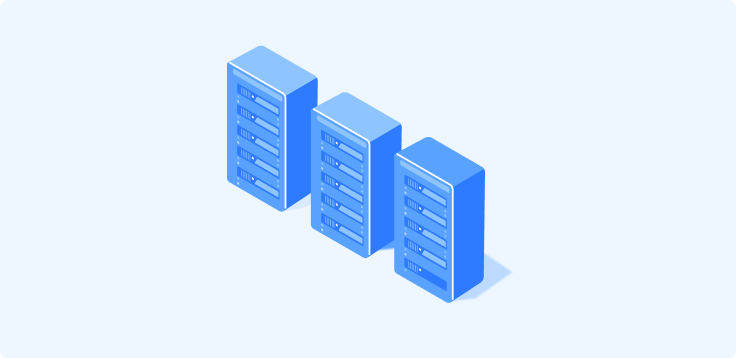Jul 05, 2024
The Importance of Rotating Proxies in Public Web Data Collection

Collecting public web data can be a catalyst to succes for businesses, researchers, and developers. However, one of the biggest challenges is ensuring that your data collection process is smooth and uninterrupted. That's where rotating proxies come in. Let's dive into why these handy tools are so important and how they can make your data-gathering process a breeze.
What Are Rotating Proxies?
Imagine you're visiting a website to gather information, but instead of using the same "door" every time, you use a different one on each visit. That's essentially what rotating proxies do. They change your IP address with each request, making it look like your data collection efforts are coming from multiple sources rather than a single one.
Why Use Rotating Proxies?
1. Get Smoother Access
Rotating proxies spread your requests across multiple IP addresses, increasing the amount of access to public web data you get.
By using rotating proxies, you can distribute your requests, making it appear as though they are coming from various users rather than a single entity. This not only prevents your IP from being known but also ensures that your data collection process is uninterrupted.
2. Access More Data
Some websites restrict the amount of data you can access from a single IP address. With rotating proxies, you gather more comprehensive data without hitting any limits.
For instance, consider a scenario where you're collecting product pricing information from an e-commerce site. The website might limit the number of pages you can view or the amount of data you can extract in a given time. Rotating proxies allow you to go beyond these limitations by changing your IP address with each request. This approach enables you to access a broader dataset, providing a more complete and accurate picture for your analysis.
3. Speed Up Your Data Collection
Using rotating proxies can significantly speed up your data collection process. Since your requests are distributed across multiple IPs, you can make more requests simultaneously, leading to faster and more efficient public data collection.
When you’re able to send multiple requests at the same time, your data collection efficiency increases exponentially. This is particularly beneficial for large-scale data collection projects where time is of the essence. By leveraging rotating proxies, you can gather vast amounts of data quickly and effectively, ensuring that your projects stay on schedule (and within your allocated budget!).
How Do Rotating Proxies Work?
Setting up rotating proxies might sound complicated, but it's pretty straightforward. You can use a proxy service that offers rotating IP addresses. These services automatically switch your IP address after each request or at set intervals, ensuring that your data collection continues smoothly without interruptions.
Proxy services can provide user-friendly interfaces that make the setup process simple, even for those who aren't tech-savvy. You typically configure your web scraping tool to route its requests through the proxy service. The service then handles the rest, rotating the IP addresses as needed. This automation takes the hassle out of managing proxies manually, allowing you to focus on what matters most: collecting and analyzing your data to positively impact your bottom line or project.
Benefits of Rotating Proxies
- Consistency: Maintain a steady flow of data without interruptions.
- Efficiency: Collect more data in less time.
- Ease of Use: Many proxy services offer user-friendly interfaces and easy integration with your existing tools.
Real-World Applications of Rotating Proxies
Rotating proxies are used in various industries for different applications. Here are a few examples:
Market Research
Businesses use rotating proxies to collect competitor pricing, product availability, and customer reviews. This information helps them stay competitive and make informed decisions. By rotating IP addresses, companies can gather accurate data without being restricted.
Academic Research
Researchers gather large datasets from various websites to analyze trends, behaviors, and other patterns. Rotating proxies ensure that their data collection efforts are smooth. This allows for a more comprehensive analysis and more accurate research outcomes.
SEO Monitoring
SEO professionals use rotating proxies to track keyword rankings, monitor backlinks, and analyze competitors' websites. By distributing their requests across multiple IP addresses, they can obtain accurate data to optimize their strategies.
Social Media Analysis
Marketers and analysts collect data from social media platforms to understand audience sentiment, track trends, and measure campaign effectiveness. Rotating proxies help them gather this data seamlessly.
Choosing the Right Proxy Service
When selecting a proxy service, consider factors like the number of IP addresses available, the reliability of the service, and customer support. Look for services that offer flexible plans and have positive reviews from other users.
It's also important to choose a service that provides IP addresses from diverse geographical locations. This can be particularly useful if you're collecting data from websites that display different content based on the user's location. By using IPs from various regions, you can ensure that your data collection is comprehensive and representative.
In a nutshell
Rotating proxies are an essential tool for anyone involved in public web data collection. They access more data, and speed up your data collection process. By incorporating rotating proxies into your strategy, you can ensure a more efficient and uninterrupted data-gathering experience.
So, next time you embark on a web scraping project, remember the power of rotating proxies. They could be the key to unlocking a wealth of valuable information, quickly and easily.
By understanding and utilizing rotating proxies, you can enhance your public web data collection efforts, making them more efficient and productive. Enjoy!
You might like these, too
Price Monitoring · 5 minutes read
Data Collection · 4 minutes read
Data Collection · 5 minutes read
